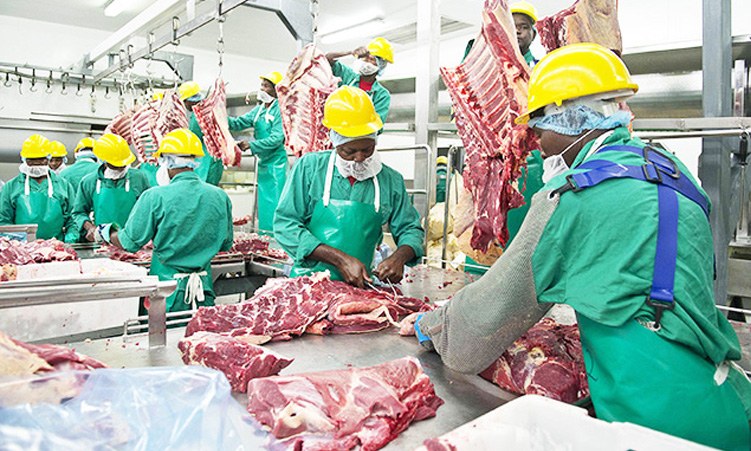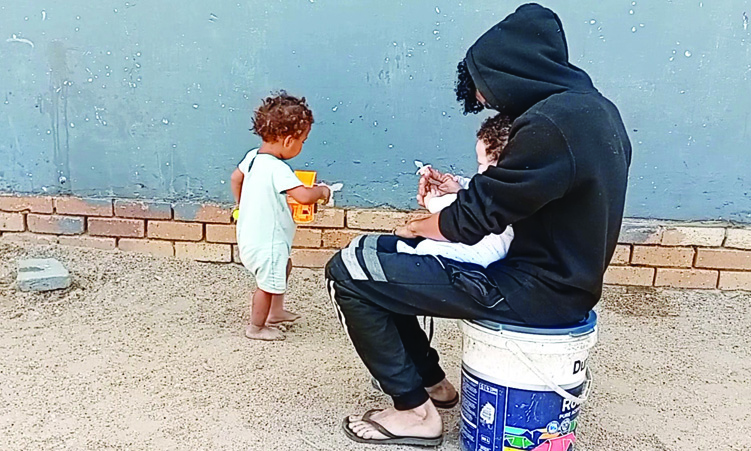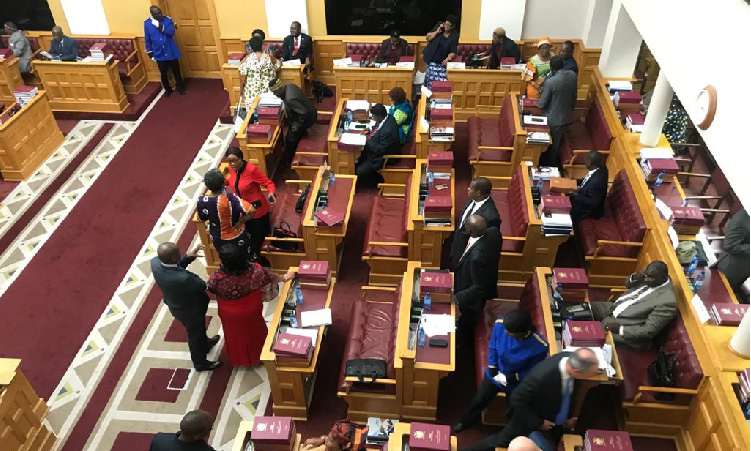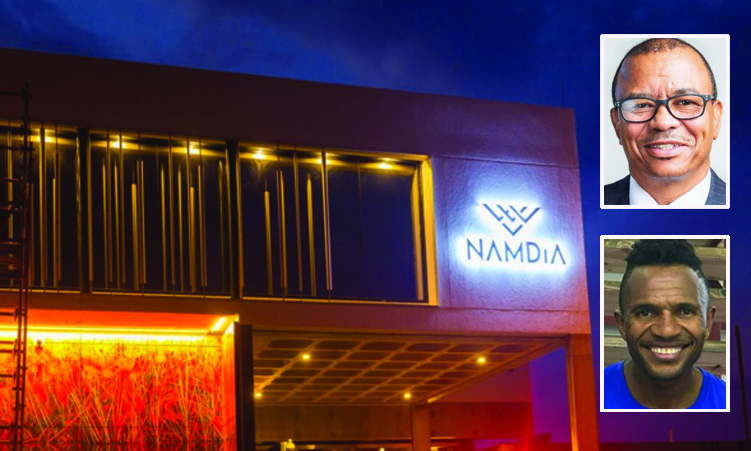DISPUTED confessions are set to take centre stage when the marathon Caprivi high treason trial continues in the High Court at Windhoek Central Prison at the start of next week.
The trial, of which the main part is now in its sixth year, is scheduled to continue before Judge Elton Hoff on Monday with further evidence to be heard on alleged written confessions that some of the 117 men who are charged in the trial made to Magistrates after their arrests.Alleged confessions that are claimed to have been made by four of the 117 accused persons – John Masake, Albert Mangilazi, Charles Samboma and Victor Lunyandile – have already been in the spotlight with the most recent proceedings in the trial during April.Another alleged confession, made by Saviour Tutalife, who is one of the 28 undefended accused persons who have been boycotting the trial since March 2007, has already been received by Judge Hoff as evidence in the trial. With Tutalife absent from the trial, no objections were raised before former Magistrate Alexis Diergaardt read out the full statement that she said Tutalife made before her at her office at the Grootfontein Magistrate’s Court on November 18 and 19 1999.The prosecution did not have it so easy when it came to alleged confessions that were made by Masake and Mangilazi, though.On behalf of Mangilazi, defence lawyer Victor Kachaka told the court that he was challenging the admissibility of his client’s alleged confession, as this statement was not made freely and voluntarily or without undue influence. Kachaka said Mangilazi was ‘brutally assaulted’ by three Police officers when he was arrested on July 18 2002, and Police officers also in essence instructed him what to say in the statement that he made to Katima Mulilo Magistrate Rachel Sakala on July 25 2002.Police officers being accused by Mangilazi all denied these claims when they were called to testify in the trial within a trial on the admissibility of the alleged confession made by him. The court was also told that Mangilazi has not sued the Police for allegedly having been assaulted – unlike dozens of his co-accused who have taken legal action based on claims that they were assaulted.Defence lawyer Jonathan Samukange, who is representing Masake, had a bone to pick about the language that was used when Masake made a statement before Magistrate Sakala at Katima Mulilo on January 16 2001, and when he gave an initial plea on a charge of high treason in the Grootfontein Magistrate’s Court six days later.On both occasions, Silozi interpreters were used to interpret what Masake was saying into English. According to Samukange, though, Masake is actually Totela-speaking and does not know Silozi.Both Magistrate Sakala and Magistrate Harris Salionga, who took Masake’s plea in the court at Grootfontein, disagreed about Masake’s claimed ignorance of Silozi.If Masake did not know Silozi and had said that he wanted to use Totela instead, she would have noticed it, Magistrate Sakala told the court. She said it appeared to her that Masake was comfortable using Silozi, which is a language that she also understands well.Magistrate Salionga also testified that he knows Silozi well. On the day that he took the plea from Masake, he did not notice any problems with the interpretation between English and Silozi of what was transpiring before him in court, he said.According to the record of the plea that Masake gave before Magistrate Salionga on January 22 2001, Masake’s response to the high treason charge that was put to him was: ‘I am wrong.’The Magistrate took this as a guilty plea.When the Magistrate questioned Masake on this plea, Masake told him that he was present when the attacks of August 2 1999 took place. Although he was not armed, he was part of a group of people who were carrying firearms, he said.Their intention was to use violence to topple the government, Masake confirmed.In the statement made by Tutalife, he told Diergaardt that he left Namibia and went to Botswana in December 1998. He ended up living at Dukwe Refugee Camp in Botswana, and returned to Namibia in April 1999. He then teamed up with various other people who are also charged in the main treason trial or were prosecuted in the second Caprivi high treason trial, living in a succession of bush camps in the Caprivi Region and on an island in Zambian territory until July 1999, Tutalife related.On August 2 1999 alleged members of a separatist armed organisation, the Caprivi Liberation Army, carried out surprise attacks on Government-linked targets at Katima Mulilo.According to the statement made by Tutalife, he was part of a group of people that attacked the Special Field Force base at Katounyana outside Katima Mulilo. He related that he carried a 60mm mortar bomb to the site of the attack, and that the attackers turned and fled once ‘Government forces’ started firing at them after the attack had begun.Tutalife also told Diergaardt that his and his colleagues’ goal ‘was to liberate Caprivi’.’I was aware of the fact that my actions was against he Government of Namibia,’ a section of the last part of his statement reads. ‘I know now that it was wrong and unlawful. We intended to defeat the Government and to liberate Caprivi.’The court was told that Tutalife was first regarded as a potential State witness in the treason case after he had been detained on August 9 1999. He was then kept at a Police base at Houmoed, a farm in the Gobabis area, until it was decided in mid-November 1999 to arrest and charge him as a suspect in the treason case.Judge Hoff has said that he will decide at a later stage whether the statement made by Tutalife amounts to a confession or admissions that were made by him.According to the leader of the prosecution team involved in the trial, Deputy Prosecutor General Herman January, the State also has some twenty additional alleged confessions that it wants to use as evidence in the trial. The current phase of the trial is set to be devoted to efforts to introduce these statements as evidence before Judge Hoff, January indicated on Friday last week.
Stay informed with The Namibian – your source for credible journalism. Get in-depth reporting and opinions for
only N$85 a month. Invest in journalism, invest in democracy –
Subscribe Now!









